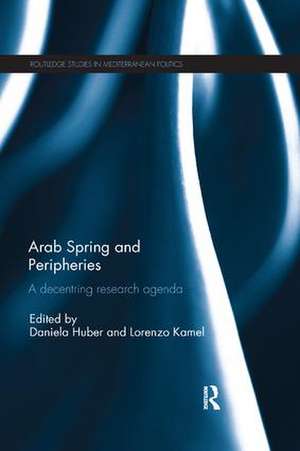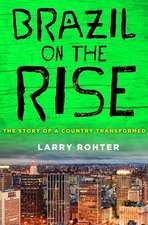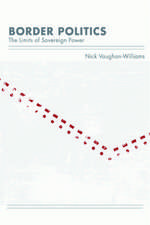Arab Spring and Peripheries: A Decentring Research Agenda: Routledge Studies in Mediterranean Politics
Editat de Daniela Huber, Lorenzo Kamelen Limba Engleză Paperback – 18 oct 2018
This book was published as a special issue of Mediterranean Politics.
| Toate formatele și edițiile | Preț | Express |
|---|---|---|
| Paperback (1) | 66.86 lei 6-8 săpt. | |
| Taylor & Francis – 18 oct 2018 | 66.86 lei 6-8 săpt. | |
| Hardback (1) | 233.51 lei 6-8 săpt. | |
| Taylor & Francis – 24 mai 2016 | 233.51 lei 6-8 săpt. |
Preț: 66.86 lei
Preț vechi: 78.68 lei
-15% Nou
Puncte Express: 100
Preț estimativ în valută:
12.79€ • 13.38$ • 10.63£
12.79€ • 13.38$ • 10.63£
Carte tipărită la comandă
Livrare economică 03-17 aprilie
Preluare comenzi: 021 569.72.76
Specificații
ISBN-13: 9781138393226
ISBN-10: 1138393223
Pagini: 170
Dimensiuni: 156 x 234 x 21 mm
Greutate: 0.32 kg
Ediția:1
Editura: Taylor & Francis
Colecția Routledge
Seria Routledge Studies in Mediterranean Politics
Locul publicării:Oxford, United Kingdom
ISBN-10: 1138393223
Pagini: 170
Dimensiuni: 156 x 234 x 21 mm
Greutate: 0.32 kg
Ediția:1
Editura: Taylor & Francis
Colecția Routledge
Seria Routledge Studies in Mediterranean Politics
Locul publicării:Oxford, United Kingdom
Cuprins
1. Arab Spring: The Role of the Peripheries. 2. Transition and Marginalisation: Locating Spaces for Discursive Contestation in Post-Revolution Tunisia. 3. The Peripheries of Gender and Sexuality in the ‘Arab Spring’. 4. Plus ça change? Observing the dynamics of Morocco’s ‘Arab Spring’ in the High Atlas. 5. Secular Autocracy vs. Sectarian Democracy? Weighing Reasons for Christian Support for Regime Transition in Syria and Egypt. 6. Territorial Stress in Morocco: From Democratic to Autonomist Demands in Popular Protests in the Rif. 7. Protests Under Occupation: The Spring Inside Western Sahara. 8. Periphery Discourse: An Alternative Media Eye on the Geographical, Social and Media Peripheries in Egypt’s Spring. 9. Arab Spring: A Decentring Research Agenda.
Notă biografică
Daniela Huber is Senior Fellow at IAI. She holds a Ph.D. from the Hebrew University of Jerusalem and an M.A. degree in International Relations from the Free University of Berlin. She has worked for the Friedrich Ebert Foundation in Tel Aviv and Berlin and as a Carlo Schmid Fellow at the United Nations in Copenhagen. Her research interests include EU and US foreign policies in the Middle East and North Africa, democracy promotion and democratization, the European neighbourhood, and Israel/Palestine.
Lorenzo Kamel is a Middle East Historian at Bologna University and a Research Fellow (2013/14 and 2014/15) at Harvard University’s Center for Middle Eastern Studies. He authored four books on Middle Eastern affairs, including ‘Imperial Perceptions of Palestine: British Influence and Power in Late Ottoman Times’ (I.B. Tauris 2015).
Lorenzo Kamel is a Middle East Historian at Bologna University and a Research Fellow (2013/14 and 2014/15) at Harvard University’s Center for Middle Eastern Studies. He authored four books on Middle Eastern affairs, including ‘Imperial Perceptions of Palestine: British Influence and Power in Late Ottoman Times’ (I.B. Tauris 2015).
Descriere
Local "peripheries" in the Arab world have for decades been seen as "static" and thus not worthy of much attention. This volume instead explores their contribution and reaction to the Arab uprisings and so diversifies our understanding of the wider social dynamics of the Arab Spring.
This book was published as a special issue of Mediterranean Politics.
This book was published as a special issue of Mediterranean Politics.




























